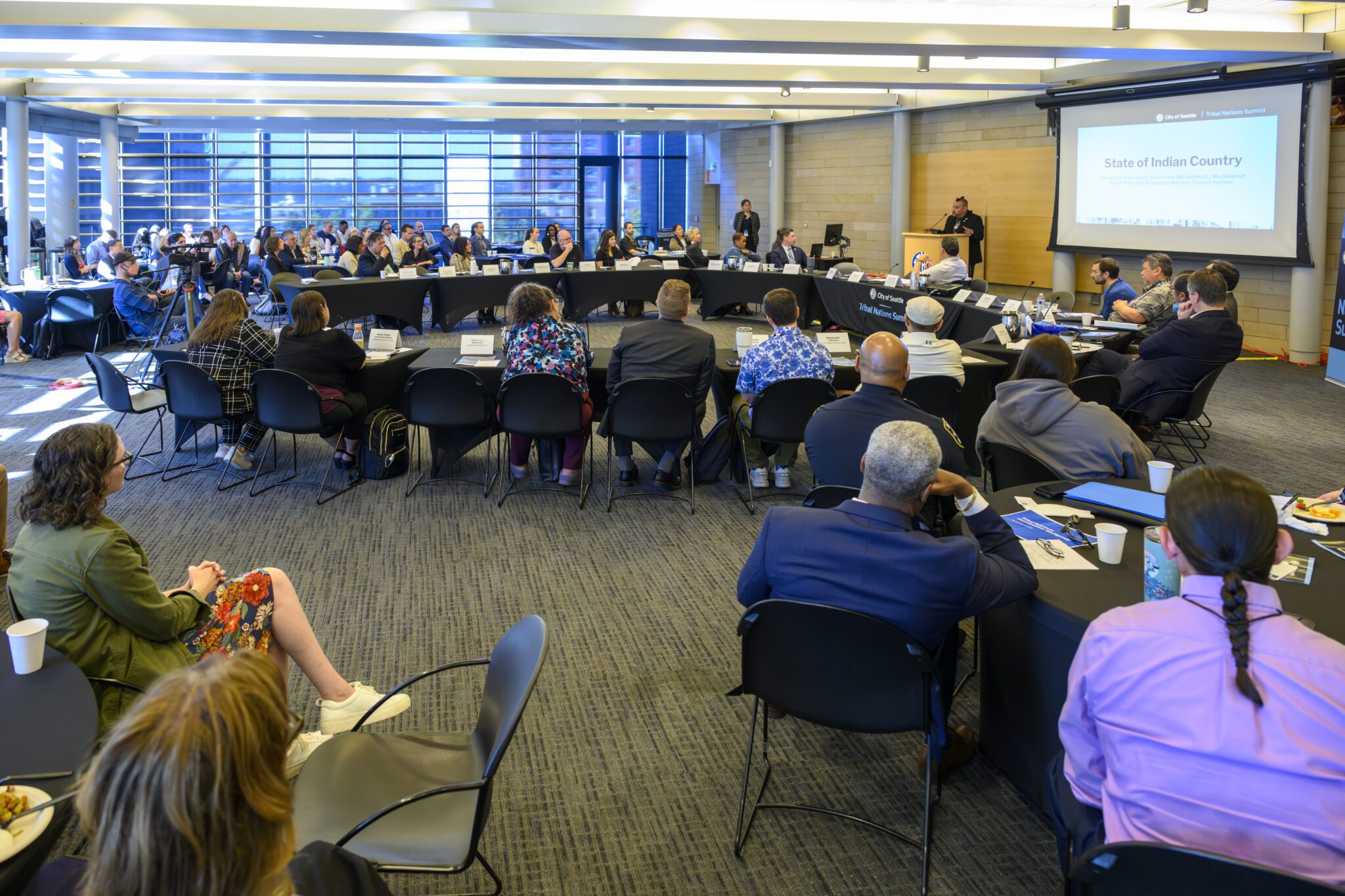
Seattle — On September 16th, Mayor Harrell joined Tribal leaders, City officials, and community partners at the second Biennial City of Seattle and Tribal Nations summit — a gathering where Tribal leaders engage directly with city officials to uphold sovereignty and Treaty rights, strengthen government-to-government relationships, and set shared priorities for the future.
The day’s agenda included a listening session with Mayor Harrell and City leadership, as well as moderated discussions shaped by priorities identified by Tribal leaders focused on practical actions to strengthen collaboration across governments and improve outcomes for the more than 46,000 American Indian, Alaska Native, and Native Hawaiian residents who call Seattle home.
“The investments in my proposed budget reflect what we’ve heard — support for housing, cultural space, and health care — and reflect our commitment to supporting Tribal Nations and Native communities in ways that strengthen families, culture, and community.”
— Mayor Bruce Harrell
Mayor Harrell previewed more than $9 million in new investments in his proposed 2026 budget — supporting affordable housing, cultural preservation, and behavioral health care.
Key projects include:
Hon. Donny Stevenson, Muckleshoot Tribal Council and Indigenous Advisory Council (IAC) Board Member, attended the summit and shared his perspective on these investments.
“The vital importance of the tangible investment of real resources in Tribal and Native priorities with the City of Seattle’s budget, helps to directly serve Indigenous people by honoring legal obligations, addressing historical injustices, and fostering mutually beneficial economic growth between the City of Seattle, Indigenous people, and Tribal Nations. The policy of investing in self-determination, rather than relying on systems of external control, has always led to demonstrable positive outcomes for Native populations, Tribal communities, and surrounding regions. The legitimate commitment to Native priorities within the budget, should be applauded.
The City of Seattle’s Tribal Nations Summit is becoming a meaningful, legitimate forum where federally recognized Tribes, City and urban Native leadership can regularly come together in a spirit of collaboration to strengthen our regional community and better achieve mutual goals through authentic, collaborative government-to-government engagement with federally recognized Tribes and effective dialogue with urban Native leadership.
This is especially powerful and important given some of the challenges which history bears witness to in our region. The Muckleshoot Indian Tribe is proud to help host this Tribal Nations Summit in our homelands and supports the important step forward of keeping the lines of communication open for finding innovative solutions together in the present and for future generations.”

1.5 million Chum Salmon fry took a twisting, turning waterslide out of rearing tanks at Muckleshoot's Keta Creek hatchery and splashed out to freedom in Crisp Creek and the Green River.

“The cleanup of the Duwamish River is an important step to removing sediment contamination and restoring the river for our culture and future generations.” - Muckleshoot Tribal Chairman Jaison Elkins

You can view all Christmas Party photos commissioned by the Tribe by photographer Danielle Wilcox on her portfolio site, linked here.

King County Executive Dow Constantine has appointed Muckleshoot Tribal Councilman Donny Stevenson to the Washington State Ballpark Public Facilities District (PFD) board of directors.
The Muckleshoot Messenger is a monthly Tribal publication. Tribal community members and Tribal employees are welcome to submit items to the newspaper such as announcements, birth news, birthday shoutouts, community highlights, and more. We want to hear from you!